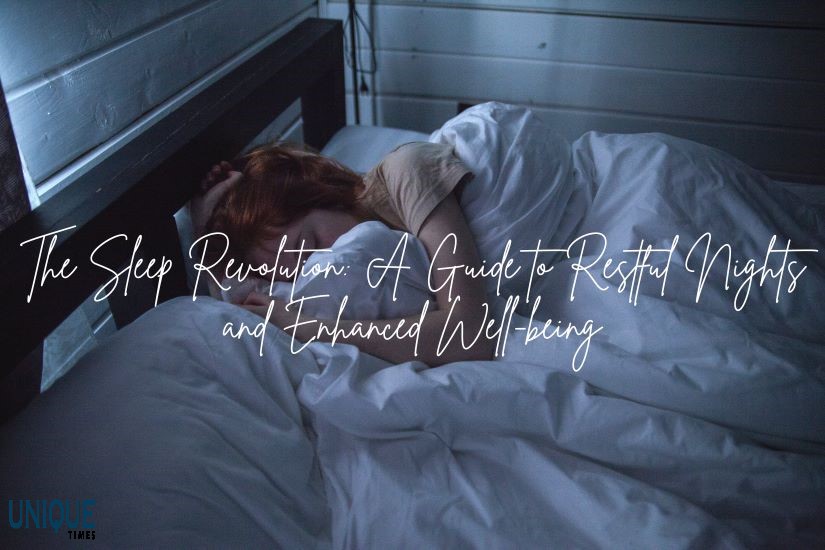The Power of Sleep: Tips for a Restful Night and Improved Well-being

In our fast-paced lives, sleep is often the first casualty. Juggling work, family, and social commitments can leave us feeling exhausted and frazzled. However, prioritizing a good night’s sleep is essential for overall well-being. Let’s explore the power of sleep and some tips to ensure a restful night.
Understanding the Importance of Sleep
Sleep is not merely a period of inactivity; it is a crucial time when the body undergoes repair and rejuvenation. During deep sleep, tissues and muscles are repaired, and the immune system is strengthened. Additionally, the brain consolidates memories and processes emotions, contributing to cognitive function and emotional well-being.
Establishing a Consistent Sleep Schedule
One of the most effective ways to improve sleep is to establish a consistent sleep schedule. Going to bed and waking up at the same time every day helps regulate the body’s internal clock, making it easier to fall asleep and wake up naturally. Aim for 7-9 hours of sleep each night, adjusting based on individual needs and lifestyle.
Creating a Relaxing Bedtime Routine
Creating a relaxing bedtime routine signals to the body that it’s time to wind down. Engage in calming activities such as reading a book, taking a warm bath, or practicing gentle stretching exercises. Avoid stimulating activities, like scrolling through your phone or watching intense TV shows, at least an hour before bedtime.
Optimizing Your Sleep Environment
A comfortable sleep environment is crucial for a restful night. Invest in a supportive mattress and pillows, and keep your bedroom cool, dark, and quiet. Consider using blackout curtains to block out external light and noise-canceling devices if needed. Make your bedroom a sanctuary dedicated to sleep.
Limiting Stimulants and Electronic Devices
Caffeine and nicotine are stimulants that can interfere with sleep. Limit their intake, especially in the hours leading up to bedtime. Additionally, the blue light emitted by electronic devices like phones and computers can disrupt the production of the sleep hormone melatonin. Aim to power down these devices at least an hour before sleep.
Seeking Professional Help if Needed
If sleep problems persist, it’s essential to seek professional help. Consult a healthcare provider or a sleep specialist to address underlying issues such as sleep disorders or insomnia. Ignoring persistent sleep issues can have long-term consequences on physical and mental health.
In conclusion, the power of sleep cannot be overstated. Prioritizing quality sleep through consistent routines, a comfortable sleep environment, and healthy habits is a fundamental step toward improved well-being. Make sleep a priority in your life, and reap the numerous benefits it offers for your body and mind.
Picture Courtesy: Google/images are subject to copyright








